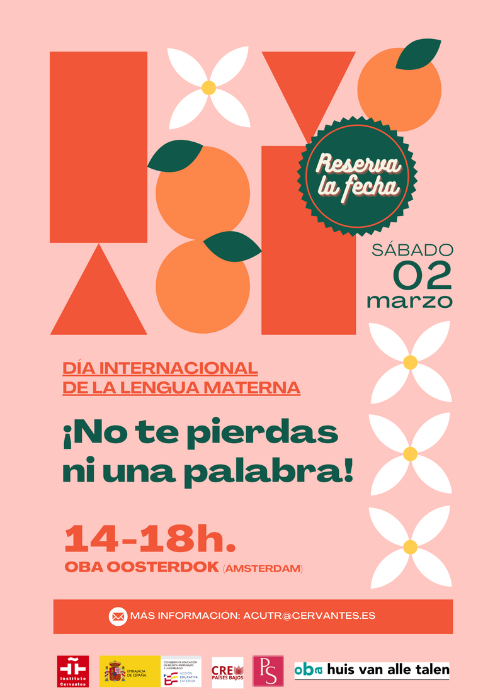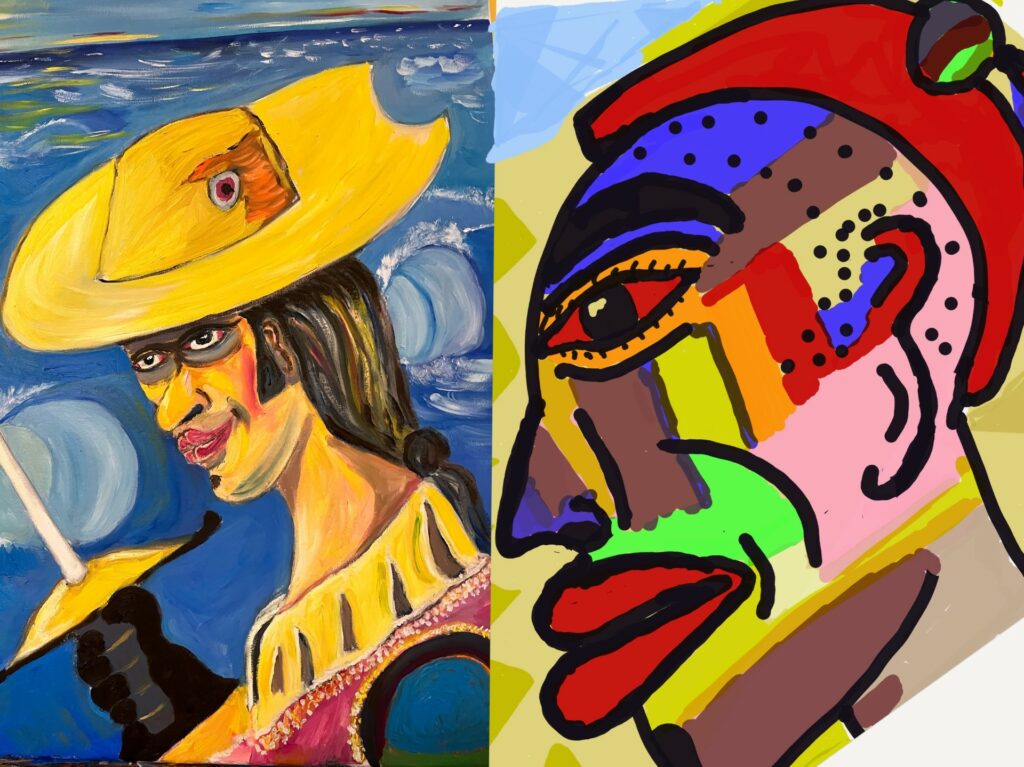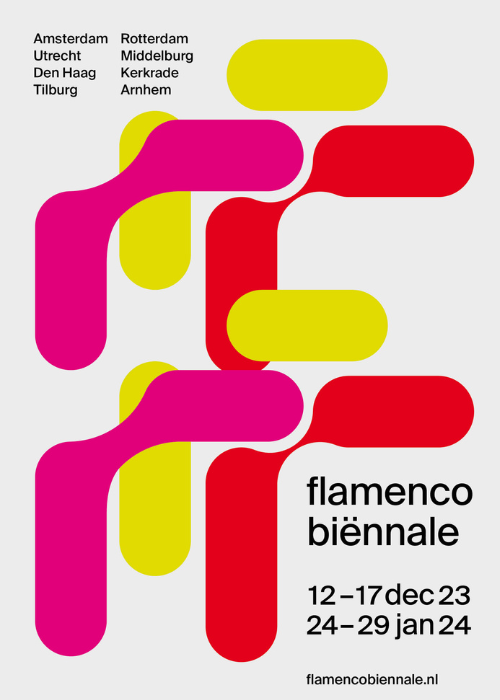Blog del Instituto Cervantes en Utrecht
Todo sobre nuestras actividades y servicios
Día Internacional de la Lengua Materna
El Día Internacional de la Lengua Materna es una celebración que nos invita a reflexionar sobre la riqueza lingüística y cultural de nuestro mundo.
En 1999 la UNESCO proclamó el 21 de febrero Día Internacional de la Lengua Materna en conmemoración del fatídico día en 1952 cuando los estudiantes de Bangladés se levantaron en defensa de su lengua.
Esta fecha nos recuerda la importancia de proteger y preservar la diversidad lingüística y cultural en todo el mundo. Es un llamado a la acción para que todos reconozcamos y celebremos la riqueza que cada lengua aporta a nuestro mosaico global.
Desde la comunidad hispanohablante en los Países Bajos queremos formar parte de esta conmemoración con un programa variado y centrado en una temática poco conocida, pero relativamente común entre los emigrantes en contextos multilingües: El fenómeno de atrición o erosión lingüística (olvido o deterioro de la lengua nativa como consecuencia de la falta de uso y el contacto con otras lenguas)
Varios expertos en esta materia nos hablarán desde una perspectiva teórica y también práctica como este fenómeno puede tener un impacto a nivel personal, social, laboral, y el importante papel que juega a la hora de transmitir el idioma a nuestros hijos.
14.00 Palabras de bienvenida del Director del Instituto Cervantes en Países Bajos, Alberto Gascón Gonzalo, y del Consejero de Educación de España en Benelux, Pedro Ruano Martínez
14.15 Ana Llamazares (Hogeschool Utrecht). Presentación teórica
15.00 Montserrat Vidal García (Psicóloga especializada en bilingüismo y lenguaje). Taller: “¡Socorro! ¿Se me está olvidando hablar mi lengua materna?”. El problema de la erosión lingüística
16.15 Pausa
16.30 Profesores programa ALCE en Países Bajos. Taller: Recursos y materiales para familias y profesionales. Cómo trabajar y desarrollar la lengua de herencia
De Internationale Moedertaaldag is een gelegenheid die ons uitnodigt om stil te staan bij de taalkundige en culturele rijkdom van onze wereld. In 1999 riep de UNESCO 21 februari uit tot de Internationale Moedertaaldag ter nagedachtenis van de noodlottige dag in 1952 toen studenten in Bangladesh in opstand kwamen om hun moedertaal te verdedigen.
Die dag herinnert ons aan het belang van het beschermen en behouden van taalkundige en culturele diversiteit over de hele wereld. Het is een oproep tot actie voor ons allemaal om de rijkdom die elke taal toevoegt aan ons wereldwijde mozaïek te erkennen en te vieren.
De Spaanstalige gemeenschap in Nederland wil graag deelnemen aan deze herdenking met een gevarieerd programma dat zich richt op een weinig bekend maar relatief veel voorkomend thema onder migranten in meertalige contexten: het fenomeen van taalerosie (het vergeten of achteruitgaan van de moedertaal als gevolg van gebrek aan gebruik en contact met andere talen).
Verschillende experts op dit gebied zullen vanuit een theoretisch en ook praktisch perspectief praten over hoe dit fenomeen een impact kan hebben op persoonlijk, sociaal en werkniveau, en de belangrijke rol die het speelt bij het overbrengen van de taal op onze kinderen.
14:00 Welkomswoord van de Directeur van het Instituto Cervantes in Nederland, Alberto Gascón Gonzalo en de Consejero de Educación de España en Benelux, Pedro Ruano Martínez
14:15 Ana Llamazares (Hogeschool Utrecht). Theoretische presentatie
15:00 Montserrat Vidal García (Psycholoog gespecialiseerd in taal en tweetaligheid). Workshop: “¡Socorro! ¿Se me está olvidando hablar mi lengua materna?”. El problema de la erosión lingüística
16:15 Pauze
16:30 Professoren programma ALCE in Nederland. Workshop: Recursos y materiales para familias y profesionales. Cómo trabajar y desarrollar la lengua de herencia
La Pollera, vestido panameño tradicional
7/02/2024 – 19.00 Instituto Cervantes – Utrecht
La embajada de Panamá nos ofrece una conferencia ilustrada sobre la pollera el vestido panameño que representa el traje nacional de Panamá.
Durante la conferencia se podrá ver varios trajes en vivo y en maniquís y el traje masculino que acompaña a la pollera.
La Pollera es considerado por muchos como el vestido nacional más bello y costoso del mundo, es un símbolo de la identidad del país. Este atuendo colorido es conocido por sus intrincados bordados y diseños detallados y lo usan las mujeres para eventos folclóricos culturales tradicionales y para ocasiones especiales y celebraciones.
Tiene profundas raíces culturales e históricas provenientes de España.
Existen diferentes variaciones de la pollera, cada una de las cuales representa una región o comunidad específica dentro de Panamá. El vestido a menudo se transmite con orgullo de generación en generación y tiene un valor cultural significativo.
Suele consistir en una blusa y una falda larga hasta los tobillos y a menudo está adornado con encajes, cintas y otros adornos. Dependiendo de la región de donde provenga, el vestido, puede complementarse con accesorios como joyas de oro, flores en el cabello y, a veces, un tocado decorativo.
La evolución del vestido español original a la pollera que se usa hoy en día es un testimonio de la diversidad cultural de Panamá y una fuente de orgullo nacional. Refleja la rica historia del país de influencias indígenas, europeas y africanas en su tapiz cultural.
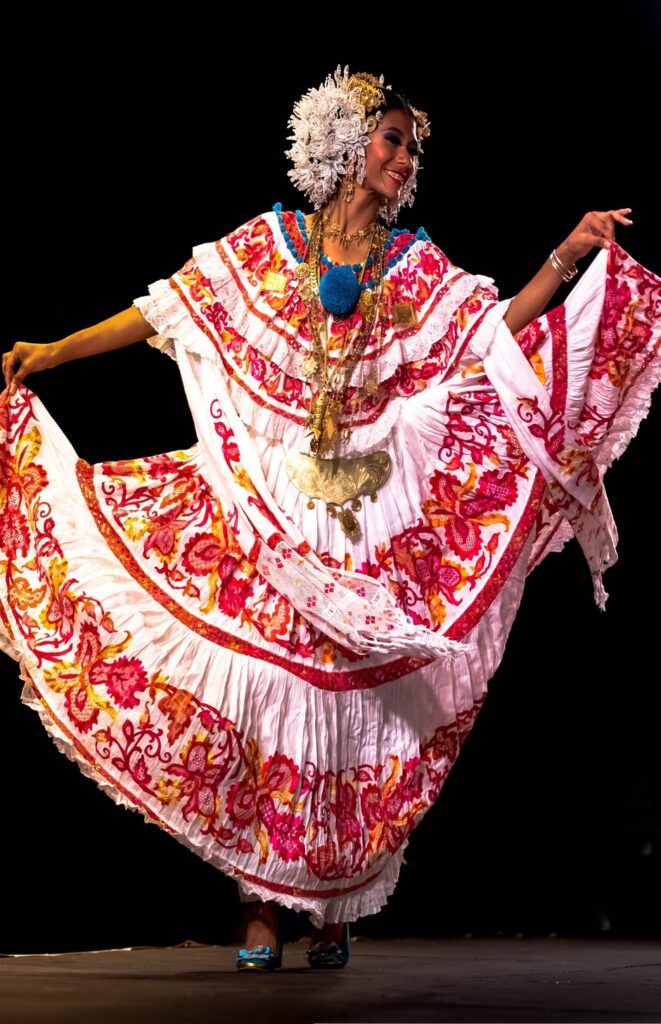
The «pollera» is a Panamanian dress representing the national costume of Panama. Considered by many to be the world’s most beautiful and costly national dress, it is a symbol of the country’s identity. The pollera is a colorful and elaborate outfit worn by women, typically for traditional folkloric and cultural events as well as special occasions and celebrations. It has deep cultural and historical roots which originate in Spain.
There are different variations of the pollera, each representing a specific region or community within Panama. The dress is often proudly passed down through generations and holds significant cultural value. The pollera is known for its intricate embroidery and detailed designs.
The dress usually consists of a blouse and a full, ankle-length skirt. The outfit is often adorned with lace, ribbons, and other embellishments. Depending on the region where it is from, the dress may be complemented with accessories such as gold jewelry, flowers in the hair, and sometimes a decorative headdress.
Evolution of the original Spanish dress into the pollera worn today is a testimony to Panama’s cultural diversity and a source of national pride. It reflects the country’s rich history of indigenous, European, and African influences in its cultural tapestry.
Sueños de Cuba – Alberto ‘Molote’ Muñoz
El Instituto Cervantes, en colaboración con la OBA, organiza una exposición de pintura del artista emergente cubano Alberto ‘Molote’ Muñoz.
Alberto «Molote» Muñoz, originario de Cuba, recorrió el mundo como músico del famoso grupo Buena Vista Social Club.
Como artista plástico, su obra se inspira en la religión yoruba y en las obras de los impresionistas cubanos Wilfredo Lam, Portocarrero y Mariano Rodríguez.
En las instalaciones de OBA Oosterdok, por primera vez mostrará su obra al público de Ámsterdam: «Sueños de Cuba», los sueños de y sobre Cuba de Alberto «Molote» Muñoz.
La exposición se puede visitar gratuitamente durante el horario de apertura de la OBA (de lunes a viernes de 8.00 a 20.00 h., sábados y domingos de 10.00 a 22.00 h.).
Inauguración el viernes 26 de enero a las 18.00 horas con una performance de jazz cubano. ¡No te lo pierdas!
Instituto Cervantes organiseert in samenwerking met de OBA een tentoonstelling met schilderijen van de Cubaanse kunstenaar Alberto ‘Molote’ Muñoz.
Alberto ‘Molote’ Muñoz komt oorspronkelijk uit Cuba en toerde jarenlang wereldwijd als muzikant met de beroemde Buena Vista Social Club. De liefde bracht hem naar Amsterdam. Toen hij een paar jaar geleden de diagnose kanker kreeg zette hem dat aan tot schilderen. Zijn werk is geïnspireerd door de religie Yoruba, en de werken van de Cubaanse impressionisten Wilfredo Lam, Portocarrero y Mariano Rodríguez. In de OBA Oosterdok laat hij zijn werk voor het eerst aan het Amsterdamse publiek zien: ‘Sueños de Cuba’, de dromen van en over Cuba van Alberto ‘Molote’ Muñoz.
Opening op vrijdag 26 januari, 18:00 uur met een muzikale performance van Cubaanse Jazz
De expositie is gratis te bezoeken tijdens de openingstijden van de OBA (maandag t/m vrijdag van 8:00-20:00 uur, zaterdag en zondag van 10:00-22:00 uur
OBA Oosterdok | Oosterdokskade 143 | 1011 DL Amsterdam
T: 020-5230900 | E: klantenservice@oba.nl
IX Bienal de Flamenco | parte 2
La IX Bienal de Flamenco regresa con un brillante espectáculo. La vanguardia del flamenco contemporáneo vuelve a recorrer los Países Bajos. La segunda parte de la novena edición del festival presenta obras de distintas generaciones de flamencos noveles: coreógrafos emblemáticos junto a jóvenes creadores y músicos, que empujan el arte flamenco hacia nuevos y apasionantes horizontes. Los rebeldes de la danza Andrés Marín, Rocío Molina y Manuel Liñán desafían los códigos del flamenco. Con los pies anclados en ritmos milenarios, recalibran la tradición con su personalísimo e idiosincrático lenguaje flamenco. La joven promesa Paula Comitre baila entre el flamenco y la electrónica de Artomático. El jazz y el flamenco se unen en los ritmos de Juanfe Pérez Quartet. Y Yerai Cortés demuestra por qué es la gran promesa de la nueva clase de guitarristas flamencos. Las actuaciones y conciertos estarán enmarcados por talleres y clases magistrales, presentaciones, Encuentros con el artista, películas y documentales. Despida el año y entre en el nuevo con la Bienal de Flamenco 2023 | parte 2.
Flamenco Fluid: Compañía Manuel Liñán
El bailarín y coreógrafo Manuel Liñán está causando furor internacional con sus estimulantes espectáculos que trascienden los géneros. En «¡VIVA!», seis hombres/mujeres les dan un giro a los roles tradicionales del flamenco con un guiño de ojo. La IX Bienal de Flamenco 2023 Parte 2 se inaugura de forma festiva y multivocal con este espectáculo aclamado mundialmente en el que el género y la identidad se celebran en el baile de forma fluida y sin límites. La inauguración en Amare, La Haya, correrá a cargo de Dolly Bellefleur, alter ego del artista/activista queer Ruud Douma y figura emblemática de la comunidad LGBTQI+ holandesa. Después habrá una fiesta con el DJ Onno Paloma.
Impulso de innovación radical: Andrés Marín
Innovador flamenco de primera hora, Premio Nacional de Danza 2022 Andrés Marín cree que «el flamenco debe liberarse de sus códigos estéticos, de lo contrario la danza está muerta». Gracias a creadores rompedores e intransigentes como Marín, el flamenco ha cobrado un nuevo rostro en el siglo XXI. En su último espectáculo «Jardín Impuro, un ojo en Picasso», el pionero del flamenco marca un nuevo hito «con un ojo en Picasso». 25 años de renovación radical transcurren en una colección de los mejores solos de Marín y un dúo con la leyenda del baile Concha Vargas. Tradición y experimentación cuerpo a cuerpo sobre el escenario, en un paisaje sonoro sobrecogedor.
Brillante oda a la guitarra flamenca: Rocío Molina
Con ‘Vuelta a Uno’, la iconoclasta bailaora (León de Plata Venecia 2022)Rocío Molina concluye su ‘trilogía sobre la Guitarra’, una estrafalaria oda a la guitarra flamenca. En la nefasta parte, como dice el título, vuelve sobre sí misma, con un ritmo imparable y una poesía física, desafiada e impulsada por el toque endiablado del guitarrista Yerai Cortés. En otro diálogo chispeante con la guitarra flamenca, Molina despliega su cuerpo y su feminidad, estirando aún más los límites del flamenco, en su búsqueda de una nueva estética flamenca. Molina salta a la luz en un baile épico, martilleante, en total libertad’. – ABC
Diálogo flamenco y electrónica: Artomático y Paula Comitre
La música electrónica en directo insufla aire fresco al flamenco anno 2023. Tras el éxito de su propia creación «La Reina del Metal» en la 1ª Parte, el festival presenta Artomático/Electroflamenco 3.0. La bailaora Paula Comitre, estrella emergente, busca un nuevo lenguaje de movimiento sobre encantadores tapices sonoros del compositor de paisajes sonoros Daniel Muñoz e improvisaciones del saxofonista Juan M. Jiménez. Un «patio de recreo flamenco» en el que los movimientos y ritmos tradicionales del flamenco se vuelven del revés con la electrónica palpitante del directo.
Impulsando el jazz-flamenco: Juanfe Pérez Quartet
El jazz-flamenco está experimentando una excitante evolución en España anno 2023, como demuestra el enérgico álbum de debut del bajista y compositor Juanfe Pérez. En ‘Prohibido el Toque’, Juanfe Pérez conecta sin esfuerzo ambos mundos en sus propias composiciones jazzísticas -flamencas de trasfondo- y crea un nuevo y sorprendente lenguaje instrumental flamenco. Pérez, que al igual que su teclista David Sancho estudió en el Codarts de Rotterdam, conoce a sus maestros y los ambienta con cariño en un explosivo paisaje sonoro rebosante de música. Flamenco profundo, pero con una firma vital contemporánea y con el bajo como protagonista.
Una nueva visión de la tradición guitarrística: Yerai Cortés
Yerai Cortés (Alicante, 1995) es uno de los grandes talentos de la nueva hornada de guitarristas flamencos. Su estilo se inspira en la tradición clásica gitana que heredó de su padre, su primer maestro. En sus comienzos, Cortés acompañó a importantes zigeurners y bailaores como Farruquito. Pero su ritmo de soniquete prospera igual de bien con el bajista y cantante de jazz Richard Bona o el popular rapero español C. Tangana. Con su ritmo juguetón y sus silencios rebosantes de música, hace atemporal la tradición guitarrística. Yerai Cortés adelantará su esperado álbum en solitario durante una gira de cuatro días, acompañado de dos éxitos femeninos. ‘Yerai, es el juego. Va directo a la esencia de las cosas, sin tapujos’. – Rocío Molina
IX Flamenco Biënnale Nederland | part 2
12-17 december 2023, 24-29 januari 2024
De 9de Flamenco Biënnale keert terug met een tintelend spektakel. De voorhoede van de hedendaagse flamenco trekt opnieuw door Nederland. Part 2 van de negende festivaleditie toont werk van verschillende generaties flamencovernieuwers: iconische choreografen naast jonge makers en musici, die de flamencokunst naar spannende nieuwe horizonten stuwen. Dansrebellen Andrés Marín, Rocío Molina en Manuel Liñán zetten de flamencocodes op losse schroeven. Met de voeten verankerd in de eeuwenoude ritmiek, herijken ze de traditie met hun hoogstpersoonlijke en eigenzinnige flamencotaal. Aanstormend talent Paula Comitre danst op het grensvlak van flamenco en de elektronica van Artomático. Jazz en flamenco komen samen in de stuwende ritmes van het Juanfe Pérez Quartet. En Yerai Cortés laat horen waarom hij de grote belofte is van de nieuwe klichting flamencogitaristen. De voorstellingen en concerten worden omlijst door workshops en masterclasses, inleidingen, Meet the Artist, films en documentaires. Wervel het jaar uit en het nieuwe in met de Flamenco Biënnale 2023 | part 2.
Flamenco Fluid: Compañía Manuel Liñán
Danser/choreograaf Manuel Liñán maakt internationaal furore met zijn prikkelende genderoverstijgende shows. In ‘¡VIVA!’ zetten zes manen/vrouwen sterk de traditionele rolpatronen in de flamenco verrassend vrolijk op hun kop. De IX Flamenco Biënnale 2023 Part 2 opent feestelijk en meerstemmig met deze wereldwijd bejubelde voorstelling waar gender en identiteit grenzeloos en fluïde worden gevierd in dans. De opening in Amare, Den Haag wordt gehost door Dolly Bellefleur, alter ego van queer artiest/activist Ruud Douma en boegbeeld van de Nederlandse LHBTQI+ gemeenschap. Na afloop is er een afterparty met DJ Onno Paloma.
Radicale vernieuwingsdrift: Andrés Marín
Flamencovernieuwer van het eerste uur, winnaar van de Spaanse Nationale Dansprijs 2022 Andrés Marín meent dat de “flamenco uit haar esthetische codes bevrijd moet worden, anders is de dans dood”. Dankzij grensverleggende en compromisloze makers als Marín kreeg de flamenco in de 21ste eeuw een nieuw aangezicht. In zijn nieuwste voorstelling ‘Jardín Impuro, un ojo en Picasso’, slaat de flamenco-pionier ‘met oog op Picasso’ een nieuwe mijlpaal. 25 jaar radicale verniewuingsdrift trekt voorbij in een slectie van de beste solo’s uit Marin’s oeuvre én in duet met danslegende Concha Vargas. Traditie en experiment lijf aan lijf op het podium, in een overdonderende soundscape.
Fonkelende ode aan de flamencogitaar: Rocío Molina
Met ‘Vuelta a Uno’ besluit de iconoclastische dansmaker (Zilveren Leeuw venetië 2022)Rocío Molina haar ‘trilogía sobre la Guitarra’, een eigenzinnige ode aan de flamencoguitaar. In deel dire keert ze, zoals de titel zegt, terug naar zichzelf, met onstuitbare ritmiek en fysieke poëzie, daarbij uitgedaagd en opgestuwd door het duivelse spel van gitarist Yerai Cortés. In weer een fonkelende dialoog met de flamencogitaar zet Molina haar lichaam en vrouwelijkheid in en rekt de flamencogrenzen verder op, in haar zoektocht naar een nieuwe flamenco-esthetiek. ‘Molina springt naar het licht in een epische dans, hamerend, in totale vrijheid.’ – ABC
Dialoog flamenco & electronics: Artomático & Paula Comitre
Elektronische live-muziek doet anno 2023 een frisse wind nieuwe wind waaien in de flamenco. Na het succes van de eigen creatie ‘La Reina del Metal’ in Part 1, presenteert het festival Artomático/Electroflamenco 3.0. Rising star, danseres Paula Comitre zoekt naar een nieuwe bewegingstaal op betoverende klanktapijten van soundcsape-componist Daniel Muñoz en improvisaties van saxofonist Juan M. Jiménez. Een ‘flamenco playground’ waar traditionele flamencobewegingen en ritmes op pulserende live electronics liefdevol binnenstebuiten worden gekeerd.
Stuwende Jazz-Flamenco: Juanfe Pérez Quartet
De jazz-flamenco maakt in Spanje anno 2023 spannende ontwikkelingen door, dat laat ook het energieke debuutalbum van bassist/componist Juanfe Pérez horen. In eigen jazzy composities – flamenco in ondertoon – verbindt Juanfe Pérez op ‘Prohibido el Toque’ moeiteloos beide werelden en schept een verrassend nieuw instrumenteel flamenco idioom. Pérez, die net als zijn toetsenist David Sancho aan het Rotterdamse Codarts studeerde, kent zijn meesters en zet ze met veel liefde in een explosieve soundscape die barst van muziek. Flamenco diep vanbinnen, maar met een hedendaagse vitale signatuur en met de basgitaar in de hoofdrol.
Een nieuwe kijk op de gitaartraditie: Yerai Cortés
Yerai Cortés (Alicante, 1995) is een van de grote talenten uit de nieuwe lichting flamencogitaristen. Zijn stijl put uit de klassieke gitano-traditie die hij van huis uit mee kreeg via zijn vader, zijn eerste leermeester. Cortés begeleidde al vroeg belangrijke zigeurners en dansers als Farruquito. Maar zijn soniquete groove gedijt even goed bij jazzbassist/zanger Richard Bona of de populaire Spaans rapper C. Tangana. Met zijn speelse ritmiek en stiltes boordevol muziek maakt hij de gitaartraditie tijdloos. Yerai Cortés geeft tijdens een vierdaagse tournee een voorproef van zijn langverwachte soloalbum, begeleid door twee vrouwelijke klappers. ‘Yerai, is het spel. Hij gaat recht naar het wezen der dingen, zonder omhaal.’ – Rocío Molina
Inauguración de «Frog Pond» de Victor Santamarina
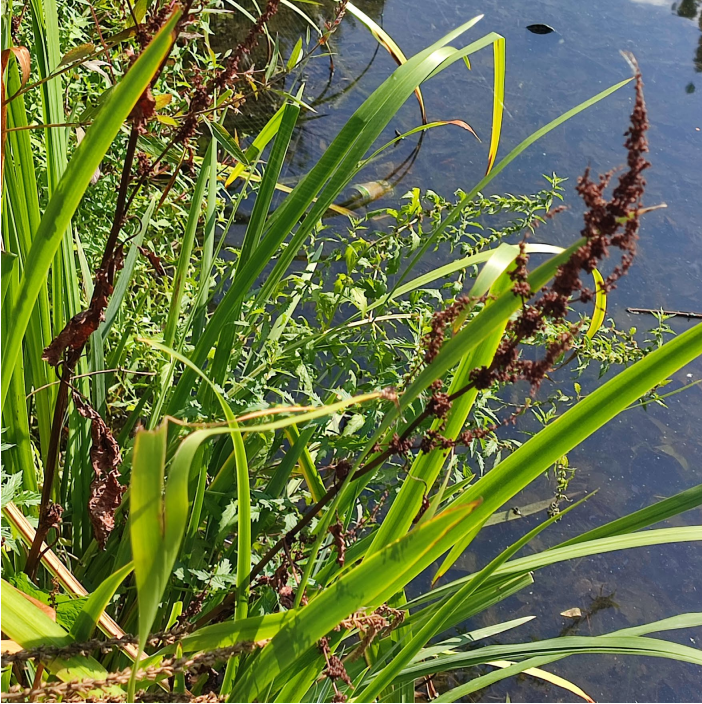
El 22 de noviembre tendremos en el Instituto Cervantes la inauguración de la instalación artística Frog Pond, del artista conceptual Víctor Santamarina, situada en nuestro patio patio interior, un espacio a cielo abierto, de gran potencial de uso y que ya cuenta con un mural. Con esta instalación, el Instituto Cervantes pone en valor este espacio y lo incorpora al resto de espacios ocupados y activos del Centro, y contribuye a la difusión del arte contemporáneo español.
Frog Pond es una reflexión acerca de la actual coyuntura climática y especula con un futuro inminente en el que los espacios urbanos, sociales y humanizados son lentamente absorbidos por una naturaleza que reclama lo que le pertenece. La instalación consiste en un pequeño estanque que se ha formado en torno a uno de los sumideros del patio, transformándolo en un estanque donde vestigios de la actividad humana se vuelven parte de un nuevo ecosistema.
Víctor Santamarina (1990) es un artista conceptual, que trabaja y vive entre Ámsterdam y Madrid, cuya obra hace uso de materiales reciclados.
________________________________________________________________________________________________________
Op 22 november vindt in het Instituto Cervantes de opening plaats van de kunstinstallatie Frog Pond van de conceptuele kunstenaar Víctor Santamarina op onze binnenplaats, een openluchtruimte met een groot gebruikspotentieel waar al een muurschildering is aangebracht. Met deze installatie verhoogt het Instituto Cervantes de waarde van deze ruimte en integreert het deze in de rest van de bezette en actieve ruimtes van het Centrum, en draagt het bij aan de verspreiding van Spaanse hedendaagse kunst.
Frog Pond is een reflectie op de huidige klimatologische situatie en speculeert op een nabije toekomst waarin stedelijke, sociale en gehumaniseerde ruimtes langzaam worden opgeslokt door een natuur die terugvordert wat haar toebehoort. De installatie bestaat uit een kleine vijver die is gevormd rond een van de afvoerkanalen op de binnenplaats, waardoor het een vijver wordt waar overblijfselen van menselijke activiteit deel gaan uitmaken van een nieuw ecosysteem.
Víctor Santamarina (1990) is een conceptuele kunstenaar die werkt en woont tussen Amsterdam en Madrid. Zijn werk maakt gebruik van gerecyclede materialen.
